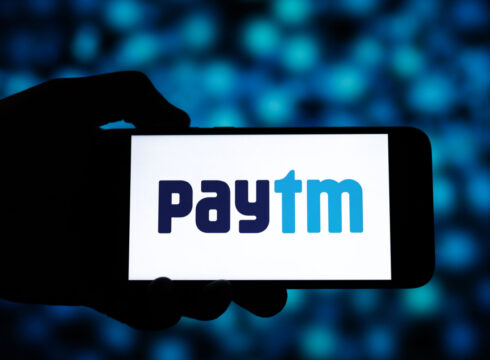SUMMARY
Paytm has been barred from onboarding new online merchants until it resubmits its PA application
Paytm has 120 days to resubmit the application to the RBI
The company said its services would remain unaffected for its existing online merchants
Inc42 Daily Brief
Stay Ahead With Daily News & Analysis on India’s Tech & Startup Economy
The Reserve Bank of India (RBI) has refused to allow a payment aggregator (PA) licence to listed fintech unicorn Paytm, according to the company’s filings with the Bombay Stock Exchange (BSE). Further, Paytm has been barred from onboarding new online merchants.
In its filing, Paytm said that Paytm Payments Services Limited (PPSL), a 100% subsidiary of the payments major, has received a letter from the RBI, informing it about the next steps to receive the licence.
“The RBI has not rejected our application, but have simply asked us to reapply in 120 days. We are taking all the necessary steps and we are hopeful of getting the required approvals soon,” a Paytm spokesperson told Inc42.
The fintech major is supposed to submit documents and get the necessary approval for past downward investment into PPSL to comply with FDI guidelines.
Paytm has 120 days to resubmit the payment aggregator application to the RBI.
The company said that the services would remain unaffected for its existing online merchants, and the rejection will not have any material impact on its business for now.
“We can continue to onboard new offline merchants and offer them payment services, including All-in-One QR, Soundbox, Card Machines, etc.,” Paytm said.
The move comes at a time when Paytm has been struggling in the stock market. Shares of the fintech major closed at INR 464.80 apiece on the BSE on Friday. Paytm stock is now more than 78% lower than its offer price of INR 2,150. To put this into context, if someone had invested INR 10,000 in Paytm stocks at the time of its IPO, their investment at present would amount to INR 2,168.
Amid the bloodbath on the stock market, Paytm, along with Zomato, issued employee stock options earlier this week.
According to related-party disclosures made by Paytm, the fintech major spent INR 564 Cr instead of employee stock option (ESOP) expenses towards directors, key management personnel (KMPs) and relatives of the KMPs.
Paytm’s Lending Business Remains Strong
The company’s most recent performance update shows its increasing market share in the digital lending ecosystem. Paytm disbursed 3 Mn loans worth INR 3,056 Cr in October 2022, capping off the strongest month for its lending business in 2022 so far.
Paytm reported 84 Mn monthly transacting users (MTU) in October 2022, an increase of 33% year-on-year (YoY). The increase in MTU saw Paytm’s gross merchandise value (GMV) rise 42% YoY to reach INR 1.18 Lakh Cr from INR 83,000 Cr a year ago.
However, it did not have a profitable second quarter (Q2). The fintech’s net loss widened 21% YoY to INR 571 Cr in the second quarter of FY23. Paytm’s revenue from operations rose 76% to INR 1,914 Cr from INR 1,086 Cr in Q2 FY22.
The company’s expenses increased 60.4% from INR 1,599.4 Cr in Q2 FY22 to INR 2,561.4 Cr during the quarter that ended on September 30, 2022. Of this, employee benefits accounted for INR 944.1 Cr, while marketing expenses stood at INR 327.5 Cr.
Update | November 26, 2022 5:40 PM
Paytm comment has been added to the story.
Note: We at Inc42 take our ethics very seriously. More information about it can be found here.


